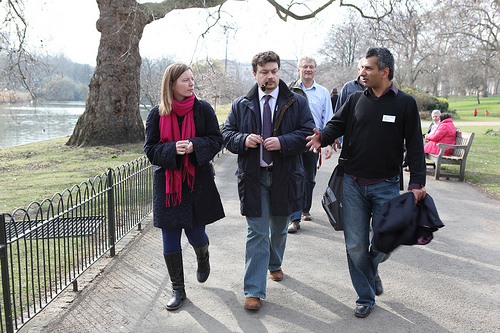 Walking, and talking, and talking, and walking…
Walking, and talking, and talking, and walking…
When I wrote about walking the social talk last week, I had no idea what a terrific discussion it would spur.
Image: Lars Plougmann via Flickr, Creative Commons
Really, if you just read through the comments, there’s your follow-up blog post… but since I promised you one, you’re getting one.
A Burke always, always keeps her promises!
All the comments were thoughtful, but there were a few that made me think a lot more about this whole “social media” thing.
Stacy Lukasavitz wrote, “I used to subscribe to this school of thought adamantly, Shonali. But truth be told, after a while, this ‘social media’ stuff has made me consciously LESS social both in person and online, and I have my reasons. I’ll hopefully be expounding on those in a future blog post.”
Hmm. Social media, which by definition is about being communal and sociable, making someone move towards the other end of the spectrum?
Interesting.
Dan Perez said (and I’m pulling excerpts), “I sometimes have a problem when people discuss the ‘right’ and ‘wrong’ ways to be social … Social media is a lot like the real world – some people do things in a manner that we agree with and some people don’t. …
“… For me, online ‘conversation’ has no real value other than being the first contact to a possible friendship or business relationship. …
“… That’s why most of my business comes through face-to-face networking either through business groups, chambers of commerce, or volunteering my services at local non profit organizations.
“ ‘Engagement’ is overrated. The question is not ‘are we walking the walk?’ but ‘why?’.
“I know why I’m here, how bout you?”
And when Robin Ferrier (whose initial post sparked this entire thing) talked about finding a middle ground, I replied, while acknowledging that I haven’t found said middle ground yet, that “I’ve found it necessary to start shutting down my online time for the sake of sanity, my eyes and my marriage (very important, that last one).”
Robin remarked that she hadn’t really thought about this, continuing to say (again, an excerpt), “Online convos and social media are allowing some of us to achieve better work-life balance.”
Being less social because of social media
 Stacy said that she’ll be writing more about this soon, but this is something that I have noticed about myself as well.
Stacy said that she’ll be writing more about this soon, but this is something that I have noticed about myself as well.
Overall, I think I’m a pretty sociable person, online and off. Offline, my life has been consumed by IABC/DC Metro events (16 more days as president but who’s counting?) and several speaking gigs (which I love doing).
So when I have some down time, there is nothing I want to do more than hibernate in my home, with my husband, dogs and, usually, music and food (ideally that I cook).
Image: Aftab Uzzaman via Flickr, Creative Commons
It’s why I wrote about networking with a twist a while back. Because there is only so much time in the day and, try as I might, I just can’t be an offline social butterfly with no end in sight.
By no means am I saying that online interaction replaces face-to-face communication; far from it.
But let’s be honest, there are way too many events these days, and not enough time.
So for me, it’s a balancing act, especially given the fact that when I commit to an offline event I have to factor in, on average, two, sometimes more, additional hours (getting ready for, and then commuting to and from the event).
Which means that my client work – which has to come first, after all, they are paying the bills – needs either to be finished ahead of time (which can stress me out) or be pushed aside.
And I prefer not to be stressed out.
So guess which one I choose?
On the other hand, my interactions in social have greatly enriched my interactions offline, when I do go to these events. I feel I already know the folks I’m meeting; typically a conversation starts off with, “Oh, you’re <insert Twitter handle>…!”
And that is very cool. That I get to put faces to names.
It’s one of the reasons I’ve felt so at home during the last few PRSA International Conferences. There’s no way – no way – I would have felt so much a part of that community if I hadn’t previously connected with many of the folks I meet IRL on social media.
Like I said, it’s a balancing act.
On the one hand, I am in complete agreement with Dan that there is no blanket “right” or “wrong” way.
Image: otrasventanas via Flickr, Creative Commons
On the other hand, I also concur with Davina Brewer‘s comment, when she said (excerpt), “Agree there may not be a definitive ‘right’ or ‘wrong’ in social media and yet, I quickly found what did not work for ME: spammy auto-DMs, programmed tweets just broadcasting all day, popups ads hyping your e-book, etc.”
These don’t work for me either. I have lost count of the number of auto-DMs I receive when I follow someone (or something?), or repeated tweets urging me to “PLEASE DONATE/FOLLOW/SUBSCRIBE AND RT!!!!”
I mean, come on. Seriously?
True, there is no perfect “right” or “wrong” way to walk the social talk. But if we put commonsense into practice, we’ll find our “right” or “wrong” way soon enough.
In other words, behave in social platforms just as we would in real life.
And if more folks did this, there would be fewer spammy DMs (or even @ replies)… which could, conceivably, lead to richer, actual, interactions.
The other point that Dan made, that I thought was really interesting, was why we (anyone) are (is) in social.
Why is anyone – a person, a company – embarking on social media?
Is it simply to chit-chat? And if that’s so, I don’t think there’s anything wrong with that… if it works for them.
Or is it for fear of being left behind? To explore a different communication channel? To start adding dimension to the existing channels?
To try to connect with those who might become part of a community? And then start converting that activity into new clients, sales, etc.?
That seems to me to be one of the key questions any organization needs to be able to answer – and answer convincingly – before they embark on social.
But one of the main lessons many organizations still have to learn is that social media is, primarily, about conversation.
Start out by incessantly tooting your own horn, shoving yourself down people’s throats, screaming and not talking, and you’re practically hoisting with your own petard.
And who on earth wants that?!
Online activity v. offline balance
I alluded to this earlier, and I think this is still one of the main concerns for anyone embarking on social media.
Will it be a time suck? Is there any ROI? Who cares what I had for breakfast? What’s the point?
It is very, very tough to find a balance… or, at least, the balance that works for you.
But if reports on how social media is slowly but surely taking a foothold around the globe are any indication, this is no longer a “should I” but a “how can I.”
And therein lies the rub.
I believe that, more and more, we will find our organizations and clients not questioning the reason to incorporate social into our overall communication plans, but asking how they (we) can hit the ground running and/or do it better.
Sure, there are some basics, but you and I know there is no one-size-fits-all answer to this.
Start (open the friggin account, for heaven’s sake!). Engage. Build. Set benchmarks. Start measuring. Etc.
Which brings me back to the original question: how are we walking the social talk?
Saying “start, engage, build” etc. isn’t enough.
Even if we’re already doing this – or think we are – how can we do it better?
What are the mechanics of being more social?
Because – it seems to me – if we can get a grip on the mechanics – and then start to personalize them – we can truly walk the social talk.
More on that tomorrow… and yes, this will also pull from the comments on the previous post (hint, Julie Walraven, you’re in it).
How cool are my commenters? Mwaah.
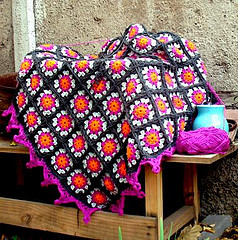





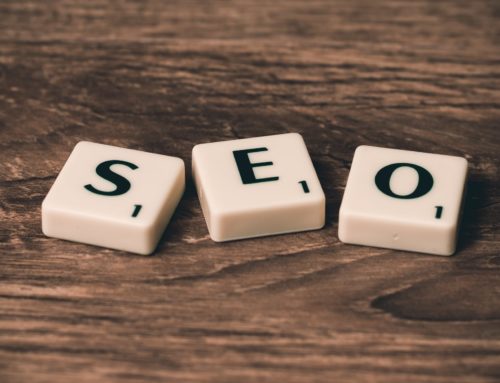
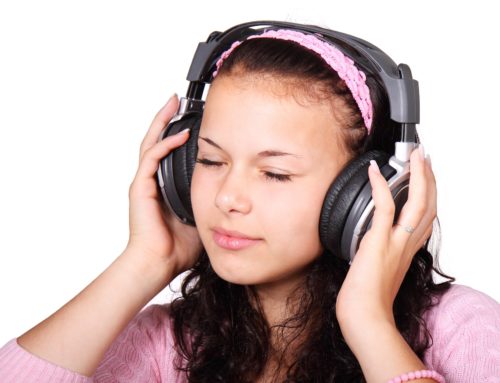
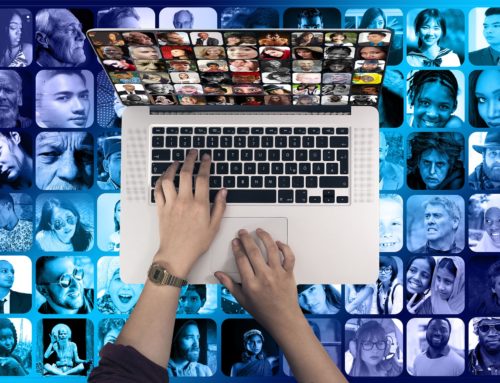
[…] again, the comments on the two posts preceding this one were quite […]
[…] talk often – myself included – about using it to build relationships, about getting to know one’s community, about deepening human […]
[…] again, the comments on the two posts preceding this one were quite […]
[…] talk often – myself included – about using it to build relationships, about getting to know one’s community, about deepening human […]
[…] got any definite answers but I’m just going to see where it takes itself. I have a couple requests of posts to write from friends/readers, a Moleskine of scribbles of ideas, and hear things like […]
Shonali — you might want to check out a recent post by Denise Graveline from don’t get caught communications. It’s all about using your comments section. You do a great job of that in this post, but I thought you’d want to read it because it’s another thought on the topic of truly being social in social media. Here’s the link: http://www.dontgetcaught.biz/2010/12/are-you-making-most-of-comments-7.html
Thanks, Robin.
Hey there, Shonali. You and Danny Brown…always making me think so hard my head hurts :). Good stuff. Couple of thoughts:
1) Answering the “Why social media?” question is so important, for your clients and yourself. For me, this one was easy. I am in a relationships business. Actually, aren’t all businesses relationship businesses? And I like people, value networking.
2) Set aside specific time to “walk the talk” or manage your social media presence online. As you noted, networking online of offline takes significant time and resources. Map it out in your day just like you would client work.
3) The balance piece is tough. I know I started coming into work earlier so I could spend some time then networking online and try to be on my computer less at night. But old habits die hard. And being brutally honest, all the great athletes, leaders, communicators all say one thing when you ask about their success: “I always wanted to work harder than they next guy/gal and I always knew when I took time off, someone was working harder than me.” So again, back to what motivates you and what it takes to get there.
Ah, you’re flattering me, Justin. :)
Yes, I think all businesses are relationship businesses, which is one of the reason I feel a little at odds when people say there’s a huge difference between B2B and B2C. As someone said the other day, all business is B2E, i.e. to “everyone,” especially in this age of social.
I think you’re exactly right about mapping out one’s social time. I’m still trying to figure out what that perfect formula is for me (if there is such a thing). That’s why I wanted to explore the “mechanics” of being social more.
Thanks for reminding me about this, Shonali. I’ve been swamped with work stuff and am currently under the weather but I hope that within the next couple weeks/over the holidays I’ll have curated enough content to revive my blog from the dead, and this impending post will be one of them. :)
I’m looking forward to it, Stacy!
[…] was a little attempt at walking the social talk. Do you know me better? Does reading about my human side make me seem more approachable, more […]
In the “what you make it” camp with Joe.
To Stacy’s point, I get the LESS social. Google remembers and Facebook’s privacy settings are alleged at best, so I edit myself. I’m selective in what I do and do not post on any network. I’m honest but not totally transparent, as what’s relevant and appropriate for one audience is not for others. Do it IRL too. If I’m around someone who tweetcasts whatever anyone says, I think about what I say.
To Dan’s point, I totally agree to some extent. I just commented on a post yesterday that Twitter makes the introductions, but I’ve deepened those relationships and made real connections by taking the conversation elsewhere: other networks and mostly, blogs like this one. You and I haven’t met face-to-face, but I do think we are connecting and walking the social talk.
IMO the online vs. offline, the personal vs. professional balance, the right vs. wrong ways will always be a Mileage May Vary proposition. If someone thinks they get ROI from just broadcasting about themselves all day, good luck with that. There is no One Size, just a matter of finding what fits you best. FWIW.
Davina, I admire how you are honest but not transparent, as you say; it comes across quite clearly. And I really like how you put that, particularly seeing as how a lot of SM gurus will talk about transparency… but there is a difference, I think, in being transparent to the point of nausea and honesty.
I do see and admire how you are walking the social talk. And I loved the post that you wrote, and will be stopping by there shortly.
Oh, I can’t take credit for the “honesty” bit, that goes to Amber Naslund and one of the posts I referenced today: http://www.brasstackthinking.com/2010/12/brand-symbiosis-balancing-personal-and-professional-online/
Like you there is a big difference in honesty, transparency, disclosure and what we do and do not choose to share. I certainly don’t share anything and everything, my Facebook page is a virtual ghost town and yet, when I do speak it IS what I think and how I feel about what I am choosing to discuss. Now my deep dark inner feelings, shameful secrets about guilty pleasure TV and time-sucking hobbies, that’s where secret code names are nice. ;-)
Secret code names, eh? Hmm… clearly I have some detective work to do!
Fantastic post Shonali. Your post covers a topic that’s sort of the “elephant in the room” with social media. If someone is great online, does it always translate in person and vice versa? As you mentioned, it’s necessary to balance online and offline interaction. Putting all your eggs in the social basket probably won’t work. Again, thanks for writing down what I’ve been thinking for awhile!
Thanks so much for stopping by, Andrea! The balancing act is a tough one, and every time I think I’ve gotten it down, bam, something happens that reminds me I don’t. Probably a good thing since it keeps me from getting complacent.
Excellent post Shonali, I would put myself soundly in the “is what you make it…” camp. In my case the objective is to eventually extend some of the online relationships into personal friendships where at least on some rare occasions I see the people at conferences or if they are local for coffee, etc. So I suppose I could also say “is a great tool for establishing relationships…”.
I think it’s definitely what you make of it, Joe. Someone asked me the other day if I thought social interaction could replace F2F, and I said definitely not (this was in the context of pitching media), but I do think it can serve as a stepping stone, or even a bridge to further, IRL interaction.
You are a perfect example; you and I didn’t even know each other prior to Amplify, and now you’re one of my trusted sources on so many things (as you know!). Had it not been for social, we’d never have “met” – and even funnier, had social been around to the extent it is today when I still lived in the Bay Area, we may already have met F2F by now. But that will happen…
[…] More: Talking The Social Media Walk | Waxing UnLyrical […]
[…] Go here to read the rest: Talking The Social Media Walk | Waxing UnLyrical […]
[…] This post was mentioned on Twitter by Bankruptcy Attorney, Forrest theMediaDude, chadi el chemali, Twiter Preneur, Position One Media and others. Position One Media said: Talking The Social Media Walk | Waxing UnLyrical http://bit.ly/fqquu1 […]